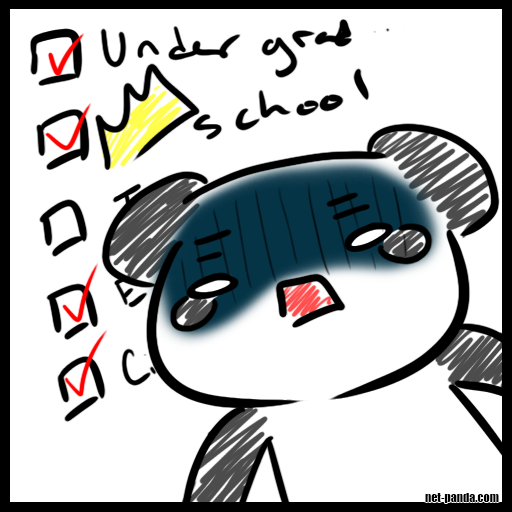Applying to Teach Overseas
If you ever had an interest in living overseas you may have considered teaching English as a way to support your travels. Depending on which foreign country you want to apply to work in, there are a many different qualifications you need to meet before you can make the jump.
While my experience is based on when I applied to work for English Program in Korea (EPiK), you can use elements of my advice as a point of reference. This isn’t a guarantee on landing the job in itself. At the end of the day there are many potential expats that have the same goal as you. The efforts you put into your own application and your reasons for wanting to teaching overseas, let alone move, are completely your own.

Before you begin you need to set yourself a destination on where you want to go.
Is there a particular country or culture that you’ve always wanted to experience? Are you ok with flying more than 10 hours around the globe? Will you be alright with changes in your diet, general lifestyle, and not having as strong of an in-person support network? Are you open to living in a less urban area? These are all questions each expat has to ask themselves before sending in their applications. Traveling to different countries provide great exposure to these cultures, however when you choose to live in another country you must learn to accept the cultural differences you will experience. You are a visitor of their country, try to stay respectful and understanding to your host countries’ customs and traditions. As representative of your home country, it is incredibly important not to do anything that could jeopardize your country’s relationship or impression to your host country. Countries are more than their media counterpart and you don’t always get to pick and choose where you get to live. Keep an open mind to where you might end up living for the next year. It will help when adjusting to a new environment and culture much faster.

What are your qualifications?
As much as there are some jobs that will overlook lack of requirements in occasional situations, when you apply to work for a new country it is not negotiable. Specifically if you are teaching English in a different country you need to minimally have to have a Teach English as a Foreign Language (TEFL) in addition to a 4 year Bachelor’s degree. If you have a Teaching degree or an English major from an English speaking country/university you do not require a TEFL. Some establishments, such as private tutoring schools, only require a general Bachelor’s degree from and English university. You will have more of an advantage if you have an English major and/or a Teaching degree, but this is more significant if you want to work in a major city. Even if you’re fresh out of university or don’t have teaching experience you can still be a good candidate if you are sincere in your application. Some countries require you to also to have studied in an English speaking country for minimally 8 years to ensure your fluency in the language. This can include your university, high school, middle school, and elementary school years.
You don’t necessarily need to be a citizen of an English speaking country, but these are only for people who happen to be applying for a country where they have citizenship in as well. For example if you have a Korean citizenship, but not an American/Canadian/ect, you can still apply to work as a Guest English teacher. Regardless of citizenship status, you need to make sure you have valid and non-expired documents, for example your passport need to be valid during your intended stay.
If you would like more information on my TEFL experience: (TO BE POSTED)

The application process – Part one, digital copy.
I’m basing this on what I needed for my application to EPIK for their spring in-take in 2017. Depending on when and where you apply to may have different requirements in what is needed to apply. Make sure to read through their requirements list very carefully. For your digital submission you do not require as much as your physical copy. This is not an excuse to not take everything seriously. Try to assemble your physical application at the same time as your digital.
To qualify for an interview you must fill out your application. It is fairly easy to fill out as it is only asking for your information. In the case of the EPiK’s application, you need to write about reasons why you want the opportunity to teach in Korea. It is best to stay sincere and honest in regards to sharing your interests in going to /Korea/, and ideally teaching. It doesn’t need be to extremely detailed, but try to show what you can bring to the program if you are accepted. Make sure to be honest if you have any noticeable body modifications or ink. Of course, they will have a stronger preference for applicants that have a more conservative appearance. That doesn’t mean you are not allowed tattoos or piercings, but they must be covered. You must maintain a professional appearance in front of your students after all.
Do not forget to submit a clear photo of yourself for your application. You don’t necessarily need to take an official passport photo, but it must a photo of similar quality. For your physical application you will need an official passport photo to submit. This is a common practice in Asia when you are submitting your application or resume to companies.
Secondly you will require 2 reference letters, 1 being from one of your previous professors from university. Of course the professors that you have bonded well with will be the most ideal candidate to contact for a reference letter. That being said be willing to have 2 back ups in case your professor declines or forgets due to their schedule. Your second reference can come from one of your back-up professors or from an employer, assuming that you have had part-time or full-time work in the past. That being said, having a reference from a previous employer is not a requirement. Regardless whomever you get your reference letter from, make sure to get the letter with “official” letter heads. They also must be signed in ink and dated. It is very important to get the physical copy as you need this for the second portion of the application process.
Lastly you must come up with a lesson plan. Think of a simple topic that you remember from elementary or middle school. It is best to keep the lesson as simple as possible, imagine teaching English to students that barely have any grasp on the language itself. It doesn’t need to be incredibly original, but creating a lesson plan allows for the recruiters to get an idea of what kind of teacher you will be. Your schools and education offices will also look through your application to see if they would like to offer you a position at their school as well.

The Interview
So you sent in your application and you’re now a candidate for an interview! Congrats, time to prepare for your Skype interview. Make sure you are ready 10 minutes before the interview starts. Dress nicely, minimally torso up, and take a deep breath. The interview is fairly straight forward and just their way of getting to know the kinds of candidates that are applying to work in their education system. They aren’t expecting everyone to be perfect teachers, but they want to make sure that you have a genuine interest in the country, culture, and teaching. If it helps, have your application ready as a point of reference in case you.
A good sign to know if you are being considered is if your recruiter is giving you tips and notes on what you need to update for your final application submission. That’s right, your digital application is more or less a draft for your recruiters to review. Take notes and under their recommendation, start collecting the final pieces of your application for the final physical submission.

The application process – Part two, physical copy.
Make sure you have all your information in order. like previously noted, you need all your documentations to be valid and photocopied, and in some cases notarized. After finishing your edits on your application, you just need to collect your documents for the final submission. Remember this needs to include everything that you have gathered in the first portion of your application process, final copy of your application + passport quality photo, reference letters, and edited essays + lesson plans.
Firstly you need a notarized copy of your Bachelors degree and TEFL certificate. This is fairly simple to do as long as you have some sort of copy in your possession. If you are unfamiliar with getting notarized documents, you seek and pay a government licensed person to create an official copy of your documents. Most cities should have at least one person with a notary license. Once you get the stamp of approval, and their signature, you are good to go. If you can’t find your original certificate/diploma you can contact your university for a replacement. Be sure to request a replacement ASAP as it will take time for them to process these documents, in addition to a fee. Don’t worry if have neither documentations because you are currently working on the degree itself. Since one of the requirements of your application is an unopened university transcript, it serves as a source of proof of your capabilities. That being said I don’t personally have experience in regards to pending graduation documents. It is always best to talk to your recruiter as they will have the best advice in this situation.
If you require a TEFL, you do not require to complete it before applying for EPiK, but you may need to sign papers or be accepted into a program promising to complete it before or while you are working in Korea. Please note that this effects your wage. It is best to complete it so as to not miss out on potential income.
Next you need a background check, that may need to be notarized and/or approved by a Korean embassy (Canadian applicants). Since background checks can vary in regards to requirements, be sure to check what is needed for your application to be valid. The process in itself does take quite a bit of time to receive. Be sure to leave yourself enough time to acquire it and send it in before the due date.
You also need to send in a photocopy of your passport. It is very important that the photocopy shows that it will not expire during your time in Korea! You will not be considered if your passport photocopy shows that it will expire during your stay.
Final notes
The overall time it took me to apply for EPiK was around 1.5 months. I was a bit more rushed as I had applied last minute due to a sudden decision to move to Korea. Most people start their application 6 months in advance. The sooner you start applying and finish your application the more likely you are to get placed in your preferred area. Of course as mentioned previously, different countries, recruiting agencies, and schools may have slightly different requirements. It also costs quite a bit to apply after factoring getting notarized documents, background checks, and mailing in the final application. Keep in mind that you can always apply at a later time, go when it best suits you.
Note that you should never hand over your original documents to your employer. Any standard employer should not be taking your physical documents as the notarized copies should be substantial enough evidence. You can bring your physical documents with you when you travel overseas, and some countries even require it for further verification. If you give your actual diploma or certificate it can be difficult to get it back if you do not live close to their offices. It doesn’t hurt to also keep scanned copies of all your documents for your reference.
Regardless of where and when you apply to work overseas, while scary, is a unique and great opportunity. Don’t stress and take your time with your application if you can. This job is both rewarding and exciting, taking the extra care when applying only serves to benefit you. While I cannot promise a guarantee when applying for the job, I hope that my explanation helps to give you more clarity into my experience. It is hard work applying, but take it slow and you can do it in no time.
Good Luck!